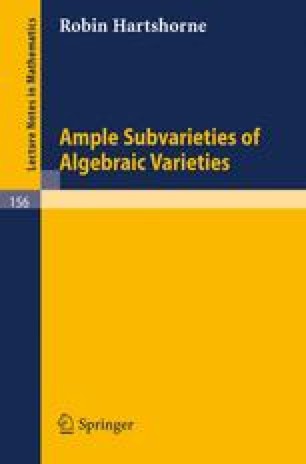


For all above example sheets, we recommend that you restrict yourself to the main questions, excluding any "extra", "additional" or "starred" questions.īasic affine algebraic geometry, in particular:.You can check if you are at the required level by doing the following exercises: GRM 2015-16 Example Sheet 2. Commutative algebra, at roughly the level mentioned in prerequisites of Basic Algebra: rings, ideals (including prime and maximal) and quotients, algebras over fields (in particular, some familiarity with polynomial rings over fields).You can check if you are at the required level by doing the following exercises: Met & Top 2015-16 Example Sheet 1. Elementary point-set topology: topological spaces, continuity, closure of a subset etc.You will need this for the following Part III courses: It is also well worth gaining some exposure to simple concepts in classical algebraic geometry. In theory, the Algebraic Geometry course usually starts from scratch, but you will find it impossible to keep up if you are not already familiar with basic algebra and point-set topology.

Basics of Classical Differential Geometry: very useful for Differential Geometry.Basic Algebraic Topology: very useful for Algebraic Topology.Basics of Classical Algebraic Geometry: very useful for Algebraic Geometry.Basic Algebra: needed for Algebraic Geometry.All do have some essential prerequisites though as well, which you can find under the "Reality Checks" in the points below. The three Michaelmas Part III courses Algebraic Geometry, Algebraic Topology, Differential Geometry don't strictly require any previous knowledge of those areas, but because of the speed they go at, some previous experience is very helpful to give some background and framework. We especially encourage the participation of women and other under-represented groups.Please take this page in conjunction with the Part III Guide to Courses Algebraic Geometry section and the Geometry and Topology section. ICTS is committed to building an environment that is inclusive, non-discriminatory and welcoming of diverse individuals. The program will include pedagogical lectures with a view toward making some of the more advanced topics accessible to a broader audience. This workshop aims to serve as a platform for junior researchers working in algebraic geometry, combinatorics and related areas to interact with leading experts in tropical and real algebraic geometry, and with each other. We envision fruitful and lasting collaborations arising out of conversations between researchers working in these and other areas. Another such area is the theory of scattering amplitudes in quantum field theory, where methods from combinatorial geometry have come to play an important role in recent years. The interface between algebraic surfaces and their tropical variants is an example of an area with potential for such interactions. Real algebraic geometry is a related active area of mathematics that is inspired by Hilbert’s sixteenth and seventeenth problems, and is a fertile ground for rich interactions between algebraic and polyhedral geometry.Īn important goal of this meeting is to initiate new dialogues between researchers working in disparate areas of combinatorics, geometry and physics that enjoy deep connections that have not yet been sufficiently explored. This is a thriving area with connections to several other areas such as number theory and topics in physics. Tropicalisation has proven to be an efficient technique for dealing with limits of algebraic varieties called degenerations. Tropical geometry is a branch of algebraic geometry that is based on transforming an algebraic variety into a “polyhedral subset” called its tropicalisation. Combinatorial algebraic geometry is an aspect of algebraic geometry where either combinatorial techniques are used to study algebraic varieties or methods (and analogies) from algebraic geometry are used to study combinatorial objects. Such sets of solutions (often with additional structure) are usually referred to as algebraic varieties. Lgebraic geometry is the study of solutions to systems of polynomial equations.


 0 kommentar(er)
0 kommentar(er)
